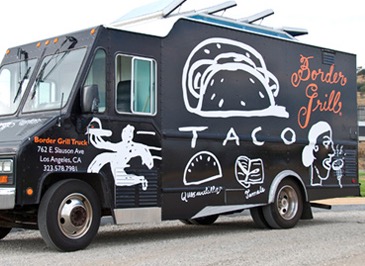
Border Grill Truck
In the mood for Mexican? Latin American? Border Grill Taco Truck has you covered.
Photo courtesy of L.A. Times

In the mood for Mexican? Latin American? Border Grill Taco Truck has you covered.
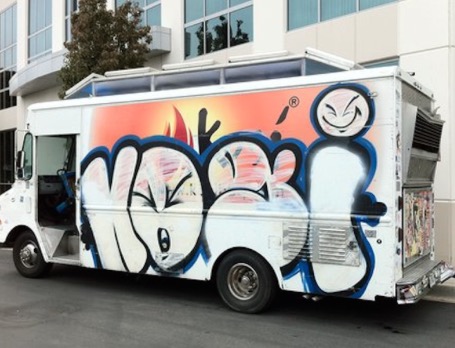
Kogi's Korean fusion tacos are all the rage. Can you say double-caramelized short rib tacos? How about kimchi quesadilla? YUM.
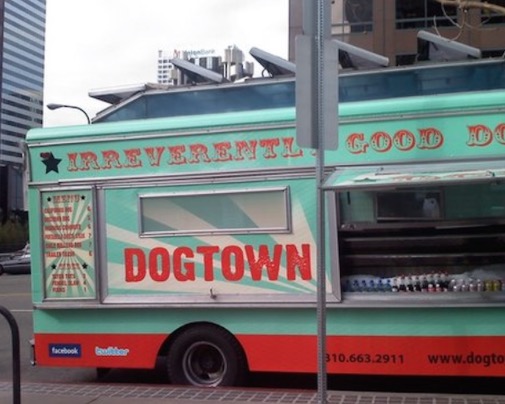
In a dog eat dog world, Dogtown Dogs has been grilling gourmet dogs since 2009. Try the California Dog with avocado, arugula, and basil aioli. Looking for a crunch? Try the Trailer Trash with chili, nacho cheese, and Fritos.
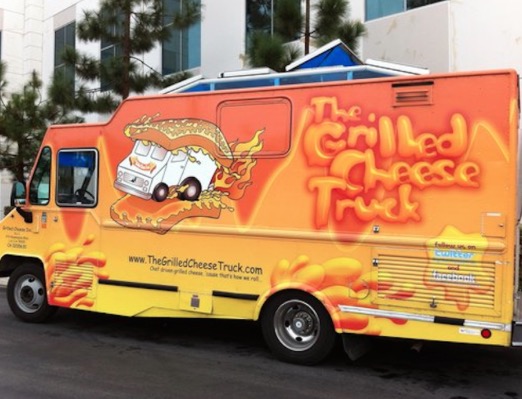
Every adult's childhood dream...on wheels. A grilled cheese sandwich stuffed with mac and cheese, BBQ pork AND bacon. This is no joke.
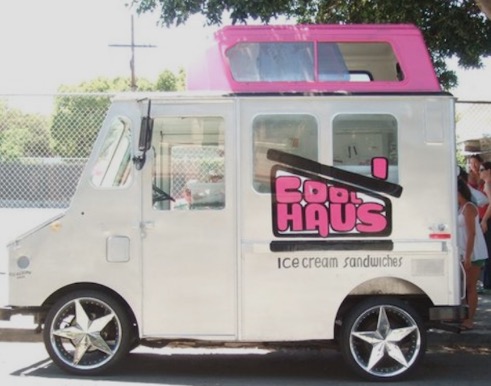
Ice Cream Man, 2.0. Coolhaus offers unique ice cream combos and flavors, gauranteed to make you glance to mom and ask for some ice cream money.
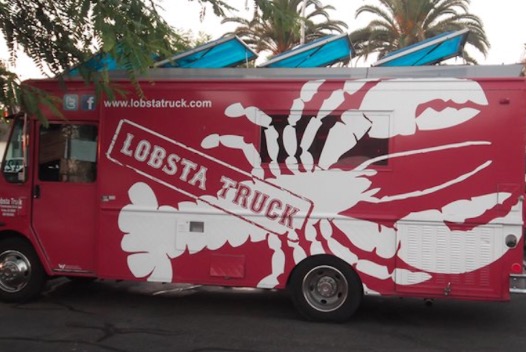
Buttery rolls filled to the brim with marine lobster, clam chowder, Cape Cod potato chips, and whoopie pies.
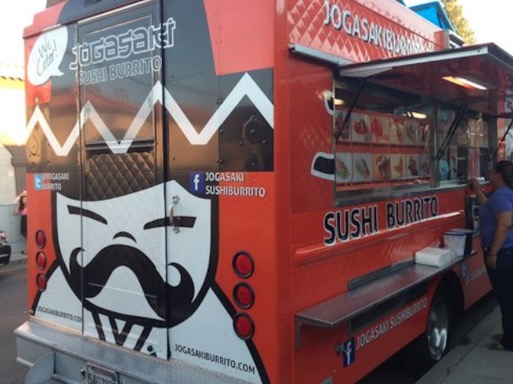
Delicate soy paper wrapping crab meat, spicy tuna, avocado, cucumber, and shrimp tempura. Feeling adventurous? Try the spicy tuna nachos served on Doritos and drizzled with eel saucy. Mmmm, saucy.
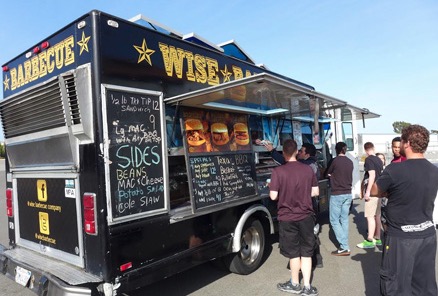
Authentic Texan tastes. Wise Barbecue Co. serves up brisket, ribs, and chicken. They smoke out the streets of L.A. daily!
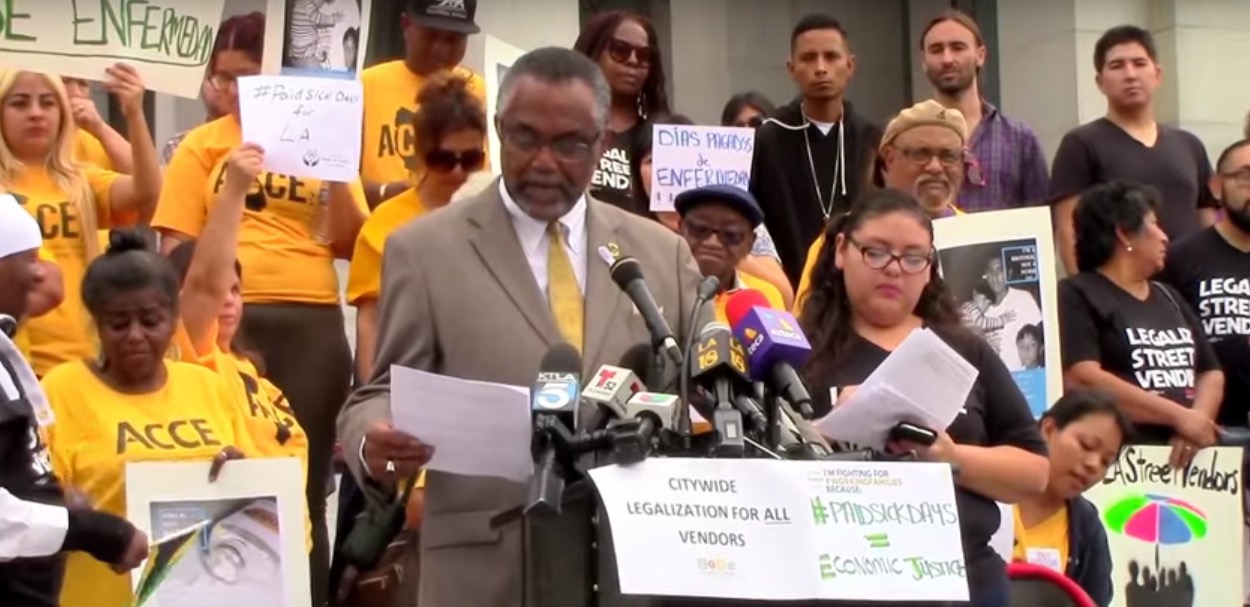
Street vendors are speaking out about the criminalization of street vending.
Out of the nation’s 10 largest cities, Los Angeles is the only one to completely outlaw sidewalk vending, according to the L.A. times. Street vendors in Los Angeles can be fined up to $1,000 for every violation, and in some cases arrested.
The streets of Los Angeles are home to an estimated 50,000 street vendors, all of which are operating illegally. These vendors peddle everything from street tacos to thread-woven bracelets to fresh fruit.
Olympia Rivas is a single mother of two and is a street vendor in the Financial District in downtown L.A. In order to support her family she sells bacon wrapped hot dogs and street tacos. “For my kids, I am able to create a life for them. This job is very important for me to be able to bring the bread home and provide for my family at home.” Apart from the financial importance street vending has for Rivas, she enthusiastically expressed that the daily grilling and chopping brings her joy and satisfaction.
“The moment of happiness you feel when you take that first bite is the feeling I have all day. I love it.”
Until Los Angeles legally permits street vending, Ms. Rivas and thousands of other street vendors will struggle to provide for their families while skipping around law enforcement.
Led by a “What do we want?” hundreds of voices chanted back in unison, “LEGALIZATION!”
Street vendors are not remaining silent about this issue. Hundreds of street vendors gathered on the city hall steps in late October 2015 to fight for the action. The Los Angeles Street Vendor Campaign has submitted a petition to the Los Angeles City Council urging it to legalize the currently outlawed, but overwhelmingly present, vendors.
Janet Farela stood strong at the podium in front of the steps of city hall that were littered with signage and united street vendors. “Us street vendors, we demand an end to criminalization and discrimination!” Los Angeles lawmaker and City Councilman Curren Price support the Los Angeles street vendor campaign. At the podium, Price announced, “In just a few hours my committee colleagues and I will begin building a framework for a legal system which would allow street vending from across L.A. to come out of the shadows.”
Price continued his supportive rhetoric over the cheers of support from the united street vendors. “Street vending has been part of LA’s culture for decades and yet we’ve failed to create a system that works for customers, vendors and brick-and-mortar businesses. Today my colleagues and I will have the opportunity to change that. We’ll have a chance to put together a program that will stand up for these micro-entrepreneurs and allow them to earn a living.”
Los Angeles life is no stranger to controversy surrounding street vending. According to the L.A. Times, during the mid-1930s, sidewalk vending was completely banned downtown. In 1974, the City Council voted again to ban sidewalk vending. Mayor Tom Bradley vetoed the ordinance because he felt that it would harm the poor.
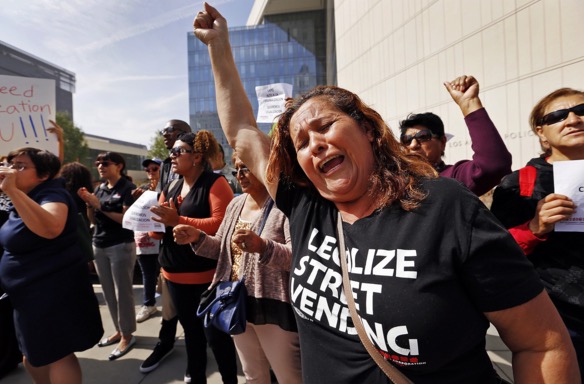
Photo courtesy of L.A. Times
“I believe we need to encourage, not discourage, the creation of new small-business enterprises, without which upward mobility on the socioeconomic ladder would become that much more difficult.”
In 1980, the city once again banned all sidewalk vending. The bans looked great on paper to lawmakers, but the reality was that street vending could not be eradicated due to the volume of present vendors and their dependency on vending to make a living. In 1994, the City Council voted to legalize sidewalk vending in designated districts around the city. This framework was so complex it took five years to establish, and was quickly realized to be unsuccessful, diminishing, due to lack of enforcement.
The biggest opponents to street vending are brick-and-mortar establishments, as the presence of these mobile businesses can take away profits from established entrepreneurs. Street vendors operate without having to pay taxes that brick-and-mortar company’s pay.
The issue of cleanliness is also raised as a concern by Angelinos. Cindy Cortez, who works a 9 to 5 job in the Financial District, has some qualms about street vending. “The air is already polluted...street vendors should be a little bit more clean in their food preparation. A lot of people have gotten sick from street food. They also leave their trash in the streets, just to leave that evening and relocate to a different spot another day. I see a lack of accountability, which is not fair to anyone.”
Los Angeles City Council has not made any further announcements about the decision to legalize street vending. Vendors look to 2017 as a beacon of legalization and opportunity for their ventures.
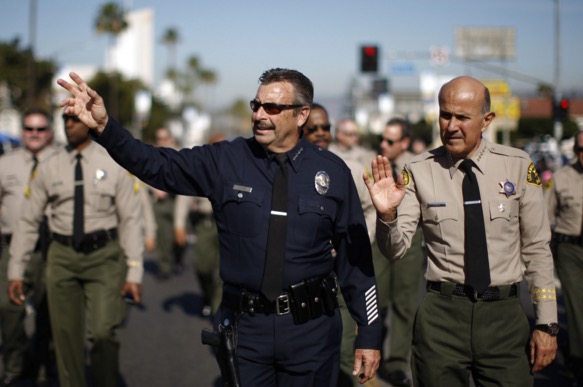

Street vendors in Colombia are called 'palanqueras' and are famously known for selling a wide array of fresh fruit to beach goers and natives.

Street vendors in Thailand sell fresh vegetables and meats in an open air market.

Man sells balloons in the center square.

Russian street vendor sets up shop outside her front porch.

Street vendor in New York presenting the famous N.Y. hot dog.

Chinese street vendors lined up along the sidewalk selling their good to the public.

Vendors walk the up and down the beaches of Brazil selling to tourists and beach-goers.